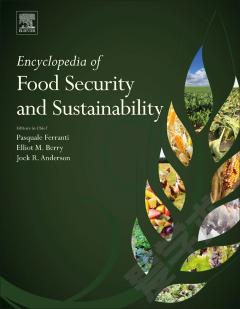Advances in Food Security and Sustainability
Abstract There is overwhelming evidence that the national food system in South Africa is in crisis, without any clear or shared understanding of a pathway toward a more sustainable configuration. Indeed, given several powerful trends that seem set to continue, there is a high level of urgency required for change: alternative pathways are required more than ever. In this chapter, we outline some key interventions that are being made across the food system in an attempt to shift the system onto a more desirable pathway. In particular, these initiatives have been identified and analyzed in terms of how they grapple with some of the negative trends driving the food system. It is argued that these innovations, if appropriately scaled, could nudge South Africa's food system into being more sustainable as well as more equitable. A variety of state, private, and grassroots led initiatives have emerged that range from agroecological farming with marginalized communities to reconstituting the terms of engagement between smallholders and retail. These niche systems provide a powerful signal for the emergence of alternative systems. Some of the key characteristics of these initiatives are that they are often partnerships, with the private sector taking on an increasingly new role in fostering their growth and that there is a clear recognition of the importance of environmental responsibility for the long-term sustainability of the South African food system. Although in no way a comprehensive analysis of all the positive inroads being made to shift the food system, there are some key crosscutting recommendations that emerge from this synopsis that can help to reconfigure a new food system with new direction and impetus. There is a need to create an enabling policy environment for fostering the initiatives that operate at the margins. New ideas, relationships, and commitment to change must be facilitated by strengthening the grassroots initiatives held by civil society, but also by forging new relationships that transcend partisan biases within sectors. Platforms and networks for information sharing are important, as these will enable the identification of new trends and relevant innovations and allow adaption of new ideas for the South African context. Finally, there is a critical need to support youth-led initiatives through skills development and financial investment, but also in terms of connecting the youth with opportunities to realize their ambitions. It is important to note that there is no silver bullet that will shift South Africa's food system onto a more sustainable and equitable trajectory. The challenge requires innovative responses and solutions that fundamentally reconsider the system as a whole and move away from fragmented, piecemeal, and difficult to scale initiatives.
{{comment.content}}








 京公网安备 11010802027623号
京公网安备 11010802027623号